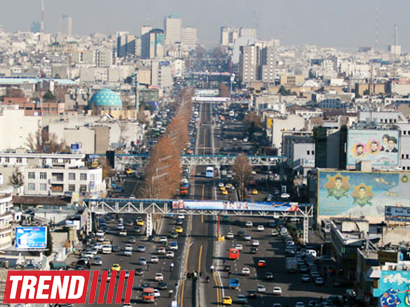Baku, Azerbaijan, Feb. 1
By Umid Niayesh - Trend:
Iran's Supreme National Security Council (SNSC) has rejected discussing the house arrest of opposition leaders next weeks.
The claims about the agenda of the SNSC meetings are not true, Keyvan Khosravi, a spokesman with the council said, Iran's official IRNA news agency reported Feb. 1.
Iran's Saham news portal reported on Jan. 31 that Iran's President Hassan Rouhani has requested Ali Shamkhani, the secretary of the SNSC, to put the issue of opposition leaders' house arrest on the agenda of the council meetings in the next two weeks.
Meanwhile, Khosravi emphasized that the published reports are not true, adding the agenda of the SNSC meetings is secret.
"The council's resolutions and decisions can be published only by the SNSC's secretariat," he added.
Khosravi also claimed that the media which has published the report are linked to the foreigners.
The Iranian opposition leaders Mehdi Karroubi and Mir Hossein Mousavi have been under house arrest since 2011 due to protests against the disputed presidential election of 2009.
After Mahmoud Ahmadinejad was elected president of Iran for the second term in 2009, the opposition leaders protested the decision, which later resulted in massive protests across Iran, particularly in Tehran. Many people were arrested.
Last November Ali Younesi, who serves as President Rouhani's special aide for the affairs of ethnic groups and religious minorities said that releasing the house arrested leaders is beyond Rouhani's authority.
"The government can only prepare grounds for lifting house arrest but has no authority on the issue," Younesi added.
Iranian MP, Ali Motahari wrote an open letter to President Rouhani last October warning him that if he did not end the house arrests of the opposition leaders, he would be summoned to the parliament.
The government spokesman Mohammad Bagher Nobakht responded that the administration was not "indifferent" on the matter but it is not going to make all its efforts in this regard public.
Motahari also approached Iran's Supreme leader, Ayatollah Ali Khamenei last June, saying that the detentions were harming the Islamic Republic's reputation abroad and raising tensions at home.
Iranian hardliners argue that the opposition leaders should remain under house arrest until they "repent."
Iran's Prosecutor General Gholam Hossein Mohseni Ejei accused the opposition leaders of "destruction of public property", claiming that they are also responsible for the killed people.
In mid-March the UN Secretary General Ban Ki-moon accused Rouhani of not fulfilling campaign promises to allow greater freedom of expression and called for the release of political prisoners in Iran including Karroubi and Mousavi.
Follow the author on Twitter: @UmidNiayesh






